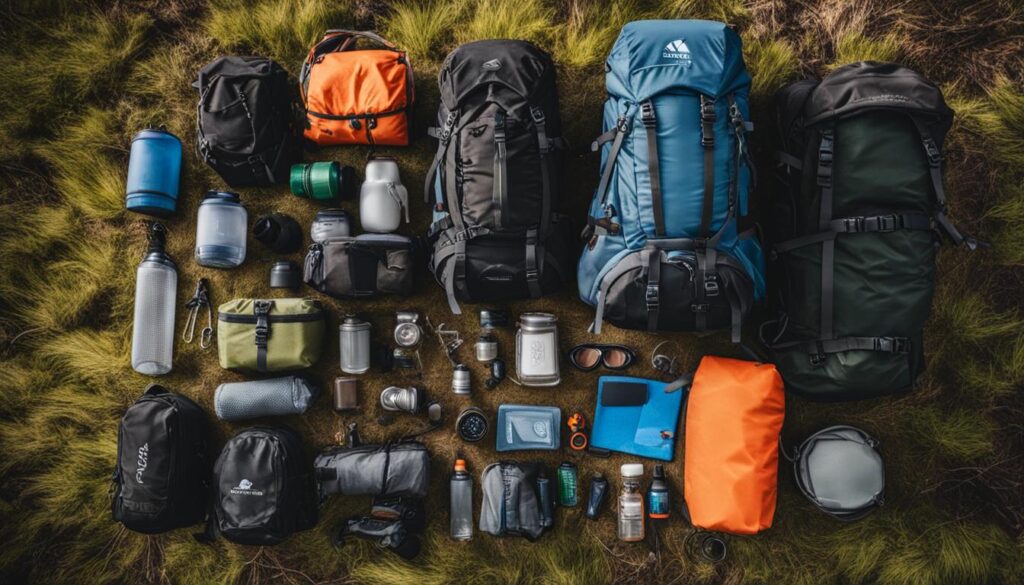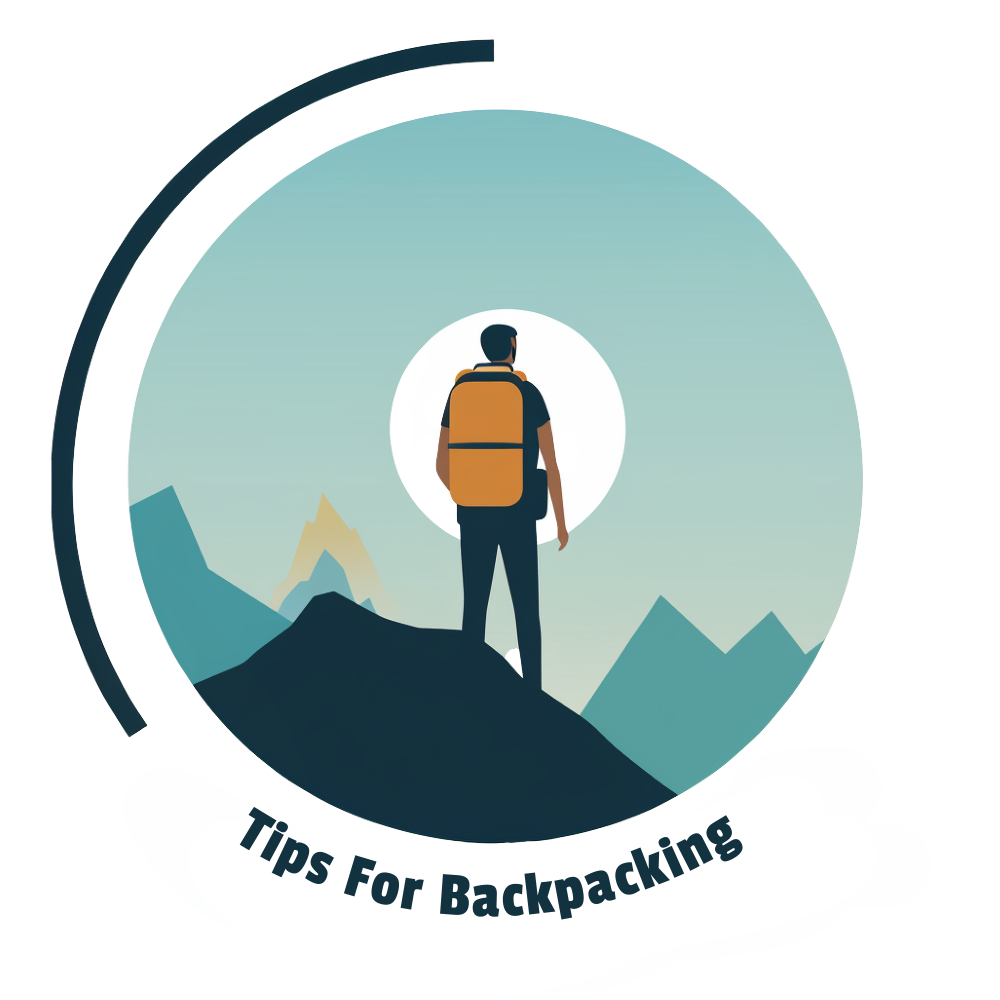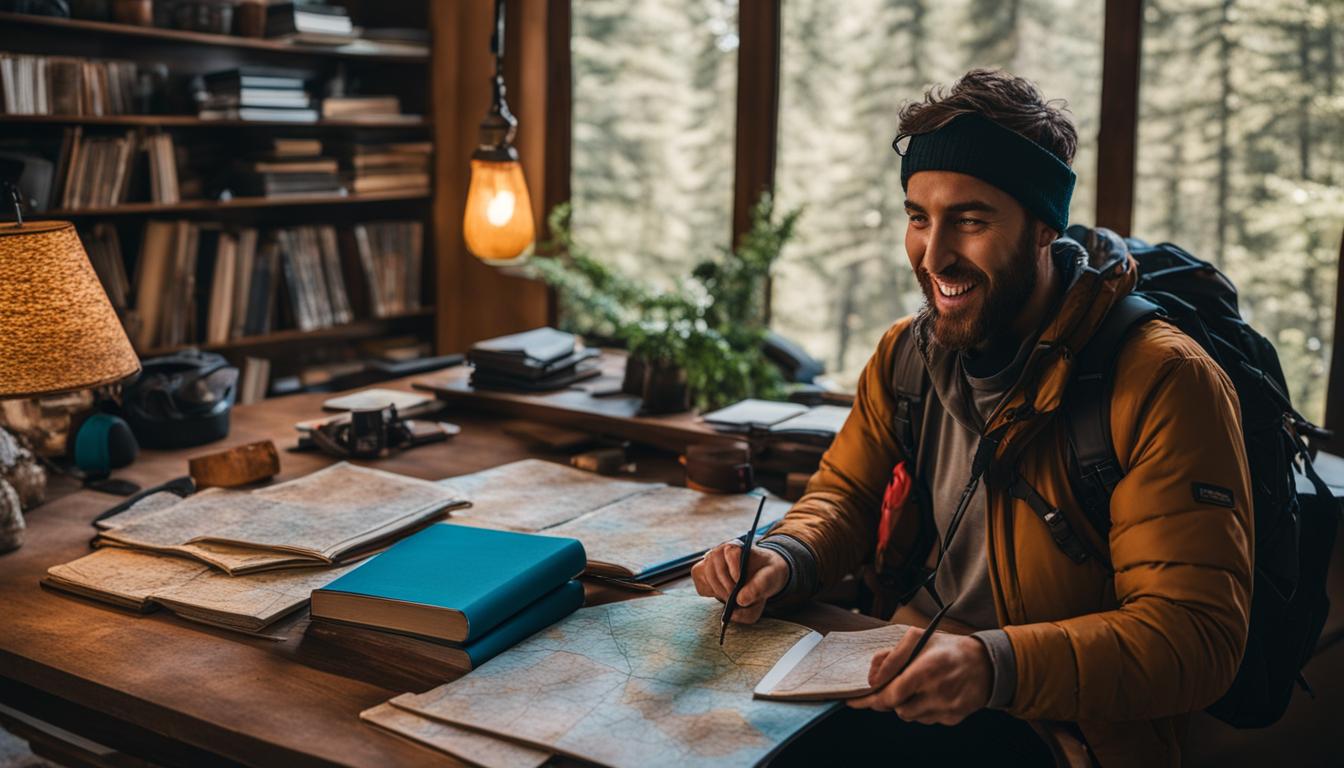Planning your first backpacking adventure can be an exhilarating and unforgettable experience. As someone who enjoys exploring the outdoors, I can assure you that careful preparation and research are essential for a successful trip. Whether you’re a beginner or seasoned traveler, these tips will help you plan a memorable backpacking adventure.
Key Takeaways:
- Planning your first backpacking adventure requires careful preparation and research.
- Take your time to familiarize yourself with the trail, weather conditions, and necessary permits.
- Invest in reliable gear and pack essentials such as a tent, sleeping bag, and cooking equipment.
- Consider your fitness level and choose a trail that matches your abilities.
- Don’t forget to pack proper safety equipment, including a first aid kit and navigation tools.
Essential Gear for Your First Backpacking Adventure

Preparing for your first backpacking adventure can be an exhilarating experience. To ensure a safe and enjoyable trip, it’s crucial to have the essential gear that will support you throughout the journey. Here is a checklist of the key items you’ll need:
Clothing and Footwear
- Moisture-wicking T-shirts and underwear
- Quick-drying pants or shorts
- Warm and waterproof jacket
- Sturdy hiking boots or trail running shoes
- Hiking socks with moisture-wicking properties
- Wide-brimmed hat or cap for sun protection
Shelter and Sleeping
- Lightweight tent or hammock
- Warm sleeping bag suitable for the climate
- Insulated sleeping pad for comfort
- Pillows or inflatable headrests for added support
Cooking and Food
- Lightweight camping stove and fuel
- Cooking utensils and cutlery
- Water filtration or purification system
- Lightweight and compact cookware
- Energy-rich and easy-to-pack meals
- Snacks with high nutritional value
Navigation and Safety
- Topographic maps or hiking guidebooks
- Compass or GPS device for navigation
- Headlamp or flashlight with extra batteries
- First aid kit with essential medical supplies
- Emergency whistle and signaling mirror
- Multi-tool or Swiss Army knife
- Sunscreen and insect repellent
Having these essential items will help you stay prepared for any situation that may arise during your backpacking adventure. Remember to choose gear that is lightweight, durable, and fits comfortably in your backpack. Additionally, it’s important to research and understand how to use each item correctly to maximize its efficiency.
With the right gear and a spirit of adventure, you’ll be ready to embark on an unforgettable backpacking journey. Stay tuned for the next section on avoiding common mistakes for beginner backpackers!
What are Some Tips for Making the Most of Your First Backpacking Adventure?
Whether it’s packing light, choosing the right gear, or planning your route, there are several first backpacking adventure tips that can help make your experience a success. Researching the area, bringing a map and compass, and being prepared for the unexpected can also ensure a smooth and enjoyable trip.
Avoiding common mistakes for beginner backpackers
As a beginner backpacker, I know how exciting it is to embark on your first adventure. However, there are some common mistakes that many beginners make, which can easily be avoided with proper planning and preparation. Here are some pitfalls to watch out for:
Overpacking
One of the most common mistakes beginner backpackers make is overpacking. It’s easy to get carried away and want to bring everything you think you might need. But trust me, you’ll regret it when you’re lugging around a heavy backpack for miles. Make a checklist of essential items, pack efficiently, and stick to the basics. Remember, less is more!
Not testing equipment
Before hitting the trails, it’s essential to test your equipment. Whether it’s your tent, sleeping bag, or stove, make sure everything is in working order. Setting up your tent and testing your gear at home will save you from any surprises once you’re out in the wilderness.
Ignoring the weather forecast
Checking the weather forecast is crucial for any outdoor adventure, especially for backpacking trips. Ignoring the forecast can lead to uncomfortable or even dangerous situations. Pack appropriate clothing and gear based on the expected weather conditions. And always be prepared for unexpected changes in the weather.
Not practicing Leave No Trace principles
As beginner backpackers, it’s important to learn and practice Leave No Trace principles. This means respecting nature, minimizing your impact, and leaving the wilderness as you found it. Follow guidelines such as packing out your trash, camping in designated areas, and being mindful of wildlife and vegetation. Leave the trail and campsite better than you found them.
Avoiding these common mistakes will help ensure a smooth and enjoyable backpacking experience for beginners like you and me. Remember, learning from others’ mistakes is the best way to avoid making them ourselves. Happy backpacking!

